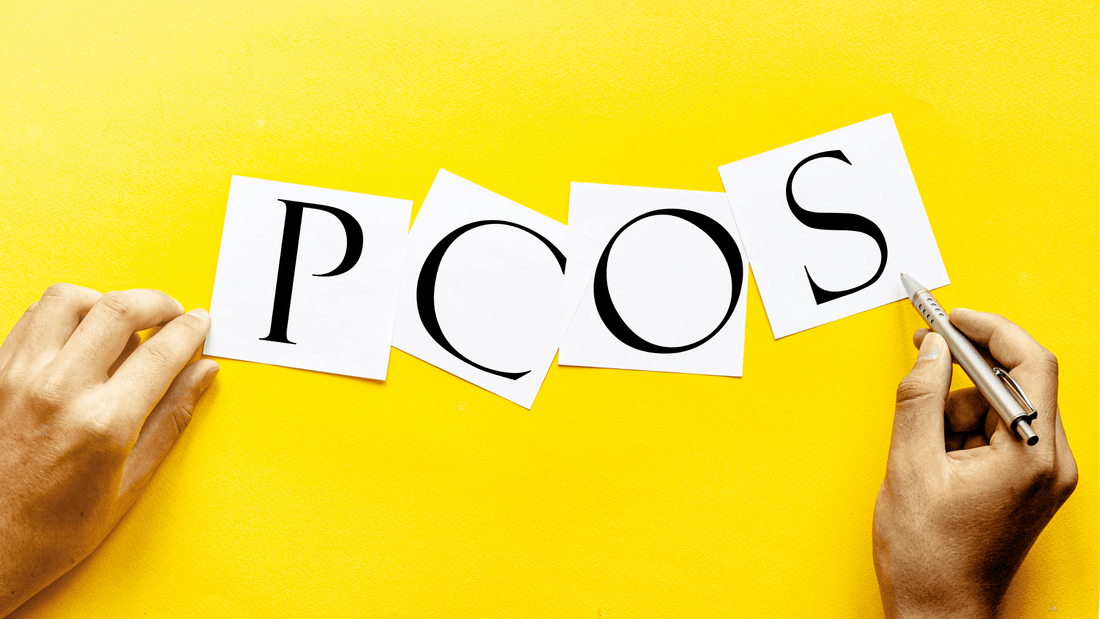
5 Whole grains that women with PCOS must include in their diet
Naturally YoursShare

We all know that whole grains have enormous health benefits, but have you ever thought its implications in PCOS?
During my diet consultation with one of my clients, who had fertility issues due to PCOS, her dietary modifications with whole grains showed remarkable changes and helped her to overcome complications. So, it’s time to focus on whole grains and its correlation with PCOS.
Let’s understand PCOS
Polycystic ovarian syndrome (PCOS) is a common endocrine disorder in women. Usually, associated with hormonal imbalance resulting in irregular periods, excessive body hair or Hirsutism, infertility, high levels of androgens and metabolic dysfunction related to reproductive health.
How do whole grains help to ease PCOS?
Whole grains are excellent sources of fibre and are packed with nutrients including protein, vitamin (especially B vitamins), antioxidants, and trace minerals (iron, zinc, copper, and magnesium).
Additionally, it takes a longer time for the body to metabolise and break them down due to their low glycemic load. This means that they are absorbed more slowly into the blood stream and you need less insulin to deal with them. Remember, less insulin means less testosterone.
More importantly, grains are the major source of complex carbohydrates which provides satiety thus initiating weight loss and reduces the blood sugar spikes which in turn reduces the symptoms of PCOS.
Eating right and adapting a healthy lifestyle accordingly aids in PCOS management. However, as the nutrients you consume can have a direct impact on your hormone production, choosing right nutrients can help alleviate symptoms at a hormonal level.
Now, are you wondering which whole grain to choose?

Here you go!
Comprising the health benefits of 5 important grains related to PCOS makes selection easier.
1. Brown rice:
Brown rice is a rich source of fibre and B-complex vitamins and along with vegetables is a good option for weight management in PCOS.
Just a cup of brown rice, favours you with nearly 90% of the recommended daily requirement of manganese, provides with important antioxidant enzyme called superoxide dismutase, which protects against PCOS and its complications (hypertension, diabetes, heart disease, etc.)
2. Whole Wheat:
Whole wheat may be a decent source of several vitamins and minerals, including selenium, manganese, phosphorus, copper, and folate with antioxidants like lignans. Whole wheat and other whole-grain cereals promote gut health, initiates weight loss, and lowers cholesterol levels.
Try incorporating broken wheat upma, khichdi with veggies, whole wheat paratha and phulkas, wheat flour ladoos with jaggery in your meals to add wheat in your diet.
3. Barley:
This versatile grain has impressive health benefits ranging from improved digestion and weight loss to lower cholesterol levels. Barley is rich in vitamins, minerals and other beneficial plant compounds.
Particularly, it is a rich source of soluble fibre, molybdenum, manganese and selenium. It also contains good amounts of copper, vitamin B1, chromium, phosphorus, magnesium and niacin.
Like other whole grains, barley does have anti-nutrients, which impair your body’s digestion and nutrient absorption capabilities. Barley reduces hunger pangs which enhances feelings of fullness and promote weight loss.
Thus, high-fibre grains offer numerous benefits to women with PCOS, such as lower insulin levels, and antioxidants which fight to lower inflammation, and better gut bacteria for improved digestion.
4. Oats:
Oats are incredibly nutritious with required micronutrients and are rich in antioxidants. It lowers the risk of heart disease by reducing both total and LDL cholesterol, improves insulin sensitivity thus normalising blood sugar levels.
The antioxidant (avenanthramide) in oats helps to regulate the blood pressure. Research also shows that PCOS can be controlled if you've got these in your diet.
Include oats in the form of oats porridge, oats Pongal, roasted oats flakes, oats upma in your customized meal.
5. Millets:
Millets are gluten free ancient grains packed with nutrients and antioxidants that supports healthy and regular digestion. It may also help resolve issues like diarrhoea and promotes healthy gut flora to prevent peptic ulcers and reduce your risk of colon cancer.
Millet is rich in catechins such as quercetin which boost liver and kidney function. It is an excellent option for people with celiac disease & gluten sensitivity.
Example: Ragi, Bajra, jowar, foxtail and pearl millets are some varieties which benefits PCOS women by maintaining hormonal balance thus alleviating the chronic complications like blood sugar spikes, heart risks, hypercholesteremia and overweight issue.
Millets can be included on a daily basis in the form of millet dosa, Pongal, porridge etc. They can also be consumed instead of rice in our daily meals.
The biggest challenge is that PCOS is a syndrome or condition so each woman has her own set of symptoms and challenges. To improve fertility and reduce the risk of type 2 diabetes and heart disease, you need to be choosing good quality carbohydrates with a low glycemic index and limiting saturated fat.
Final Glimpse!
Therefore, whole grains are one of the best options to do multipurpose tasking in PCOS by,
- Maintaining sugar levels (insulin spikes)
- Lowering Cholesterol
- Aiding in Weight loss
- Reducing Heart related diseases
- Improving gut microbiome
Though medical intervention is an absolute necessity in PCOS, these small but important dietary changes help you increase your energy and maintain your weight.
When thinking about what foods to eat with PCOS, it’s important to consider every aspect of your diet from breakfast till dinner, to ensure you’re eating a balanced diet and have variety in the plate, which can make healthy eating much easier to stick to.
Suggested Reading
1. The best natural remedies for PCOS - Read more
2. The link between metabolism and weight loss - Read more
3. Managing diabetes with a low GI diet - Read more
ABOUT THE AUTHOR

Indu Vaishnavi R, Dietician
Indu Vaishnavi, is a Consultant Dietitian with 10+ years of expertise as Corporate Nutritionist and Food Safety Auditor.




1 comment
It’s a good information with usefull tips.